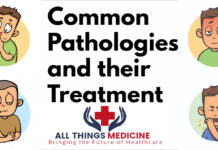Ever wondered what this cancer is and how you hear about it as a brutal disease from some of your relatives or anyone around you? worried every time that it might be that you’re having it too? In this blog post we will be discussing the what is and how to know you are having cancer.
- Cancer is a disease of abnormal cell multiplication and the body’s inability to destroy those abnormal cells.
- Cancer has more than 200 types and is the second leading cause of death.
- There can be many causes of cancer, such as mutation, environmental factors, and certain lifestyles.
- Cancer is not an age-specific disease, anyone can hit by a disease.
To stay healthy, learn that cancer is the abnormal growth of normal body cells. This growth results in damage to your normal body tissues. As a result, you become immuno-compromised to infections. There are two forms of cancer malignant and benign. If the tumor spreads through the body, it is a malignant form of cancer. But if it is not, it is a benign form of cancer. No matter! How old are you, and what are your health conditions? Look out for the possible signs; I am going to share in this article to find out if you are sick with cancer or not. These signs don’t necessarily mean you are carrying cancer, but they can help you figure out the possibilities of disease and associated risk factors. Early diagnosis means early treatments and healthy life!

Cancer a Chronic Disease:
Every single cell of your body is performing a crucial function for you. Any changes in the cell size, structure, or development may cause various indications that must concern you. It’s important to understand that you will feel weaker, tired, or fatigued if you are struggling with any infection in your body. Cancer is a chronic disease and has multiple types like blood cancer, skin cancer, bone cancer, breast cancer, colon cancer, lungs cancer, etc. Signs of cancer are persistent means if you are experiencing any abnormal changes for more than three weeks, it’s an alarming situation, and you should talk to your doctor immediately. The American Cancer Society highly recommends checks and scanning every six months. Their main focus is on patients with family history, age, and health conditions. These measures help us to overcome the spread of cancer and make people aware of their health.

The Washington Manual of Oncology PDF Download Free
Most prominent Signs of Cancer:
The best weapon to fight against cancer is to figure out signs you are having at earlier stages before it is too late. All you have to do is monitor yourself for any physical changes. That persists for more than three weeks.
- Chronic Cough: If you are having breathing difficulty and abnormal heart rates to supply oxygen, cancer is a probable cause. Especially if you have a bad cough and hoariness, get yourself checked by a doctor.
- Neurological State of mind: Cancer can affect your brain functionality. What do you feel now? Are you stressed because of headaches, changes in your hearing abilities, or abrupt changes in your vision? That’s not seasonal get yourself checked. In severe cases, a patient may get seizures and loss of appetite due to ongoing changes in the body. Both have a connection with brain and cancer can break the bridge.
- Bruises are common when you are hit by something. But don’t take it casually when seeing a sudden appearance of bruises in unusual areas, frequently.
- Reoccurring fever: Fever is the first sign that a person experiences because of an infection. But in the case of cancer, fever is episodic. That means it comes over and over, indicating a compromised immune system.
- Bloating makes people get frustrated. The prolonged bloating for more than two weeks must be concerning for you. Mostly this sign appears in people with ovarian and gastrointestinal cancers.
- Change in the breast is one of the signs which is very common among women with breast cancer. Women report the appearance of lumps, abnormal discharge or blood from nipples, and changes in size and color of the breasts. Men can also have breast cancer, but cases are low.
- Swollen Lymph Nodes: Lymph nodes are part of our system. But swollen lymph nodes indicate an underlying problem. When people have inflammations or infection, lymph node swells up. In case you experience lumps or swelling in any area of the body. Don’t panic! Go to your doctor for thorough scanning of the route cause.
- Skin changes in cancer. Your skin can make you look pale and sick with jaundice. Fever, bleeding lumps, or excessive mole formation are well-known signs of skin cancers. A fewer people also get sores that don’t go away.

- Oral Infections or changes: When you have trouble eating and swallowing, you can be a victim of cancer. In oral cancer, patients come across multiple mouth lesions or blisters that are painful.
- Pelvic changes or Abnormal bleeding: Female having prolonged bleeding time every month may have ovarian cancer. While blood in urine is common in men and women both. You may notice changes in pelvic bone, uterine, and associated structures.
- Weight Changes: Loss of appetite results in weight loss and is the foremost sign of cancer. Many types of cancer cause fluctuations in your body weight. This could be due to difficulty swallowing, bloating or abdominal discomfort, and improper filtration of toxins from the body.
- Bladder changes: Your bladder muscles lose their strength, and you feel incapable to with-hold your urine. Many of you face painful passing of urine.
Please note these signs are evidence-based but do not necessarily mean you have cancer. Before any assumptions or fears, visit your doctor if you encounter anything strange.

Risk factors of Cancer:
The human body is a machine that works around the clock. Any changes in default settings lead to errors. That’s how; disturbance by any factor will change your genetic make-up providing a ground for diseases. Among many factors that contribute to cancer; age has been on the top. Obese, alcoholics, or smokers have high risks of developing cancers. Other factors playing a vital role in cancer include family history, exposure to radiation, and viral infections. People with auto-immune diseases are also on the list.

Summary:
Spotting out any abnormal signs may help you fight cancer at earlier stages. So, it is good to be aware of your physical looks and keep replenishing your body with necessary foods. Cancer is a chronic disease resulting in destroyed immunity and general health. Keep a note that anything unusual and bothering you for more than three weeks is critical. It’s better to visit a doctor for careful scanning and monitoring of your health condition. thats how you know if you are having cancer.













